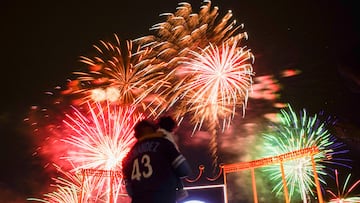4th of July: Where are fireworks illegal? Which states ban them?
Fireworks have become a staple in Fourth of July celebrations. Make sure that the types you intend to use are in keeping with your state’s regulations.

July Fourth is nearly upon us and tens of millions of Americans are getting ready to travel the length and breadth of the country to celebrate with family and friends. The holiday is well known for its cookouts and firework shows, but different parts of the country have varying degrees of leniency when it comes to pyrotechnics.
According to the National Fire Protection Association, more wildfires are started on July Fourth compared to any other day of the year, which is what led to some states imposing more restrictions on fireworks.
READ ALSO: Krispy Kreme celebrates the 4th of July with free donuts
Which states have a ban on fireworks?
Massachusetts
Massachusetts is the only state in the country which has a permanent ban on consumer fireworks. However, professionals are allowed to stage pyrotechnic shows, so you could still catch a display in the state.
READ ALSO: July Fourth cookouts will be pricier than last year’s
Fireworks regulations for other states
The other 49 states allow the sale of consumer fireworks in one form or the other, depending on the provisions of state laws. The form that these fireworks could take would depend on how lenient or how strict these state laws are.
Hawaii, Nevada, and Wyoming allow each county to establish their own regulations regarding the purchase of consumer fireworks.
There are fifteen states that allow only the sale of non-aerial and non-explosive fireworks.
- Arizona
- California
- Colorado
- Connecticut
- Delaware
- Idaho
- Maryland
- Minnesota
- New Jersey
- New York
- North Carolina
- Oregon
- Rhode Island
- Virginia
- Wisconsin
When is it legal to set off fireworks?
So you don’t break any regulations when you light up your fireworks, do remember that there is only a limited number of hours during which they are allowed. They are usually permitted from 9 a.m. to 11 p.m. on non-holidays, but they can go later on special occasions, like midnight on the 4th of July, and two hours after sunset during the Fourth of July weekend.